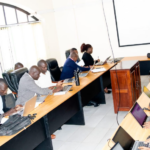Generative artificial intelligence (gen AI) applications—which produce text, images, code, and other content based on surfacing patterns in vast datasets—promise many benefits for agrifood systems (e.g., reaching more people at less cost, availability ... Source: IFPRI Malawi: Malawi Strategy Support Program
Closing the knowledge gap: Research priorities for preventing child wasting
Preventing child wasting is more urgent than ever before. Nearly 43 million children worldwide suffer from wasting at any given time, and severe wasting accounts for 20% of deaths among children under 5 years of age. This situation will likely worsen a... Source: IFPRI Malawi: Malawi Strategy Support Program
Realistic options for repurposing fertilizer subsidy spending
Worldwide, government spending on subsidies in agriculture, fishing, and fossil fuels amounts to a staggering $1.25 trillion annually. Subsidies play a significant role in every country’s fiscal policies, regardless of income level or spending patterns... Source: IFPRI Malawi: Malawi Strategy Support Program
Empowering Policy through CGE Modelling: A Trainer of Trainers CGE workshop with KIPPRA and IFPRI.
Shadrack Mwatu (KIPPRA), training the participants on the CGE modelling. Photo Credit: KIPPRA communication. Source: IFPRI Kenya – Kenya Strategy Support Program
Agrifood value chain finance can expand opportunities for smallholders
Agrifood value chains (AVCs) in low- and middle-income countries (LMICs) have been expanding due to a range of factors, including income growth, urbanization, more market-oriented policies, globalization, and technological changes. Integrating smallhol... Source: IFPRI Malawi: Malawi Strategy Support Program
- « Previous Page
- 1
- 2
- 3
- 4
- 5
- 6
- …
- 33
- Next Page »

